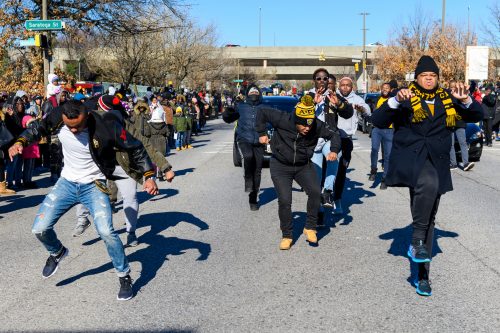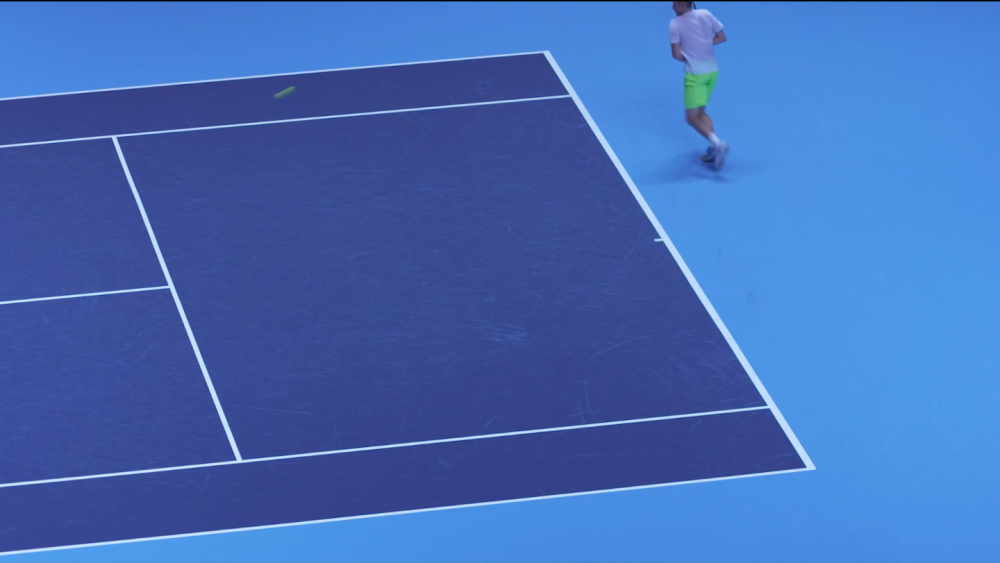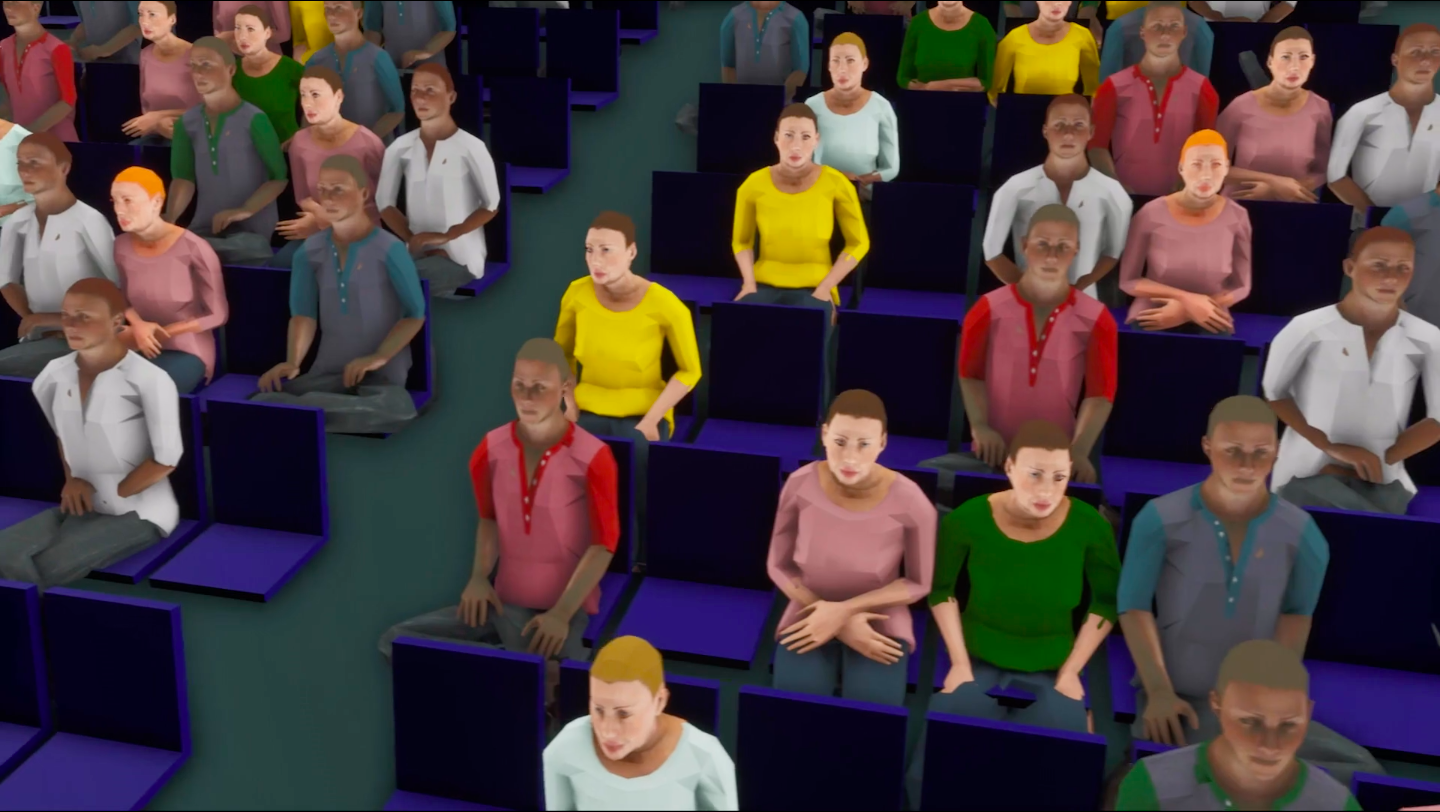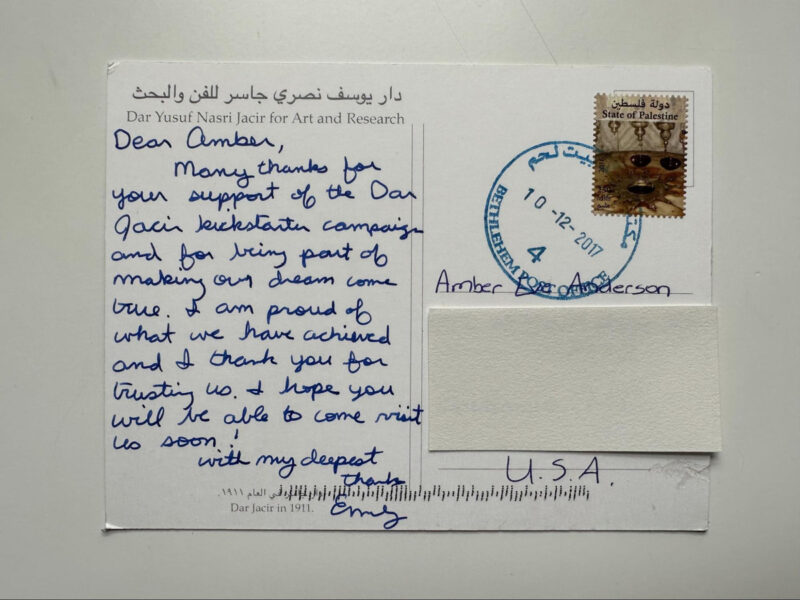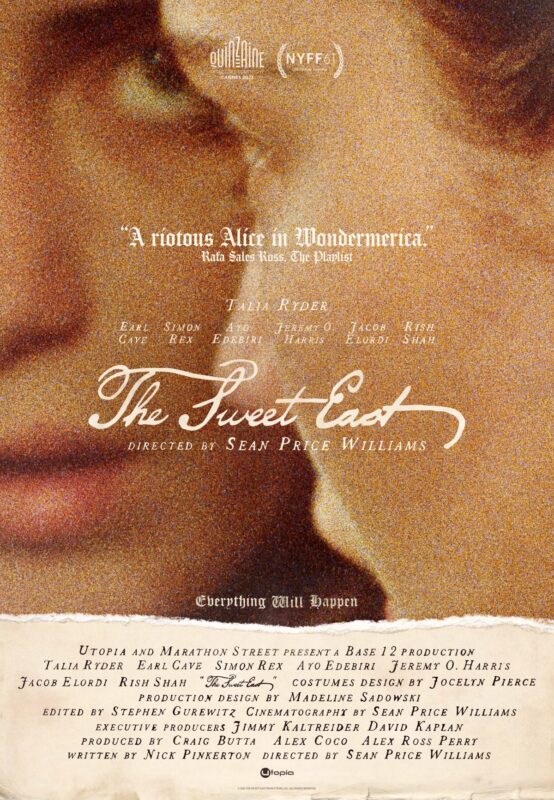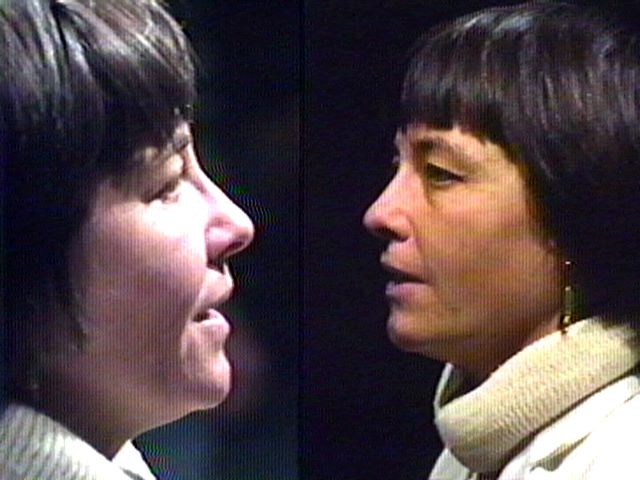Even by the balmy standards of ESPN’s 30 for 30 series which has, over the past decade or so, found ways to cram quirk, class consciousness, racial justice, and narrative experimentation into the dad-friendly sports doc format, Theo Anthony’s Subject To Review, about instant replay and tennis, is a superior straggler. Those familiar with Anthony’s 2016 documentary Rat Film, which found a way to use rats in Baltimore to explore the long tail of redlining, providing a portrait of Baltimore’s working class along the way, will not be surprised when Subject To Review takes the scenic route to get to its point, but there is still something incredibly subversive about seeing this 36-minute dérive of a doc pop-up on ESPN on a Sunday afternoon.
Subject To Review explores Hawk-Eye, a computerized, simulation-based instant replay program in use since 2006 which can determine if balls are in or out of bounds with micro-precision, often undermining “IRL” referee decisions. The movie’s concerns, though, are Foucauldian: the awful, sometimes necessary hows and whys for giving someone or something absolute authority. “A visual system initially developed to enhance entertainment becomes a tool for enhancing justice,” the narrator observes at one point. “Justice and entertainment converge.” In one sequence, Serena Williams argues with the referee (in one of those tall chairs high above the court) about a call that was clearly wrong. In another sequence, Roger Federer wonders if there is some way to disagree with a Hawk-Eye decision. There is not. These maintain the mythos of the athlete—the best at what they do debating with their god—and make them look a little ridiculous. This is how one should reckon with sport—an expressive, important, often communal thing that is also big business and ultimately comes down to, well, its rules which never entirely make sense.
Subject To Review reminded me of Yago Colas’ 2016 book, Ball Don’t Lie: Myth, Genealogy, and Invention in the Cultures of Basketball, where a question from Colas’ wife (“Why do they even need refs?”) exposed the latent, law-and-order-type that’s even inside of someone such as Colas, a left-leaning basketball fanatic. The answer is obvious, he thought at first. Without the authority of the referees, the game would devolve into anarchy. That answer “began to repel [him],” he writes. Here he was offering the sort of argument that he would never make about, say, the police.

